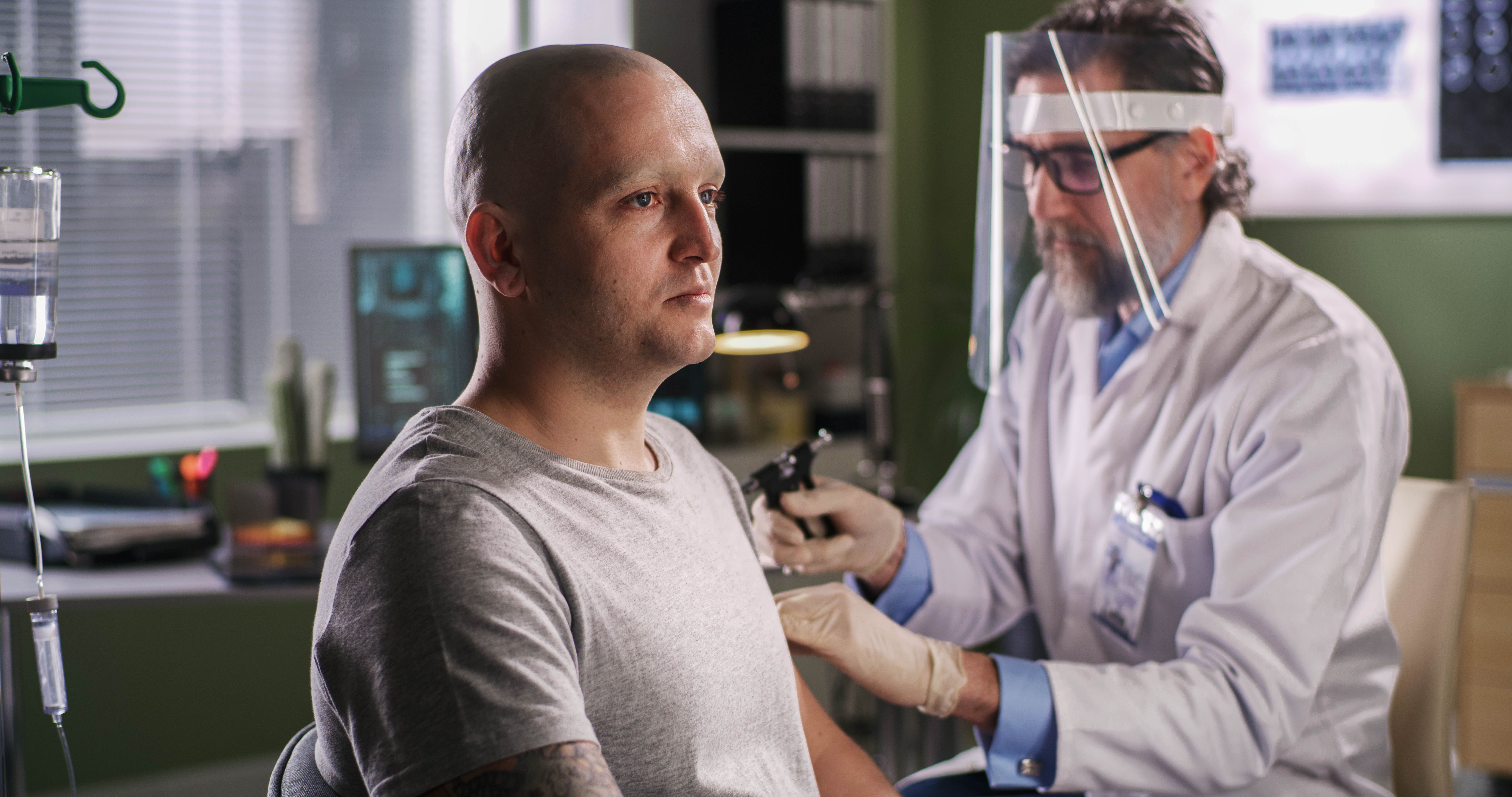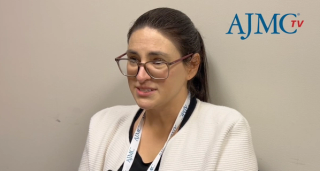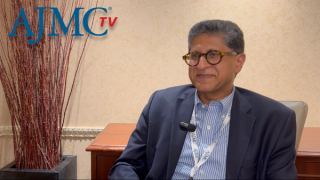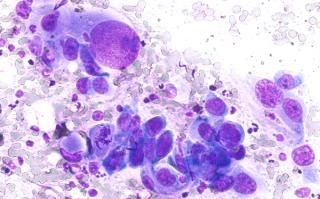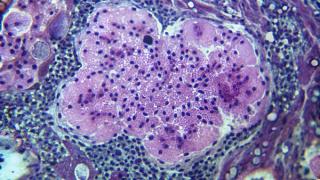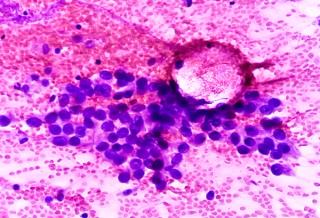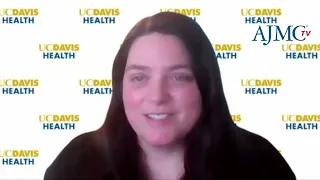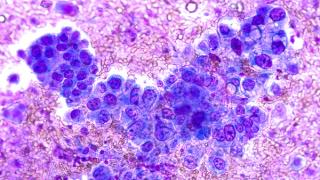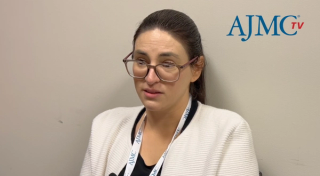
Oncology
Latest News
Latest Videos

Podcasts
More News

Sadie Dobrozsi, MD, of Evolent, discusses how predictive genomics is pushing cancer care into a new era of personalization

Robert Kratzke, MD, urged insurance providers to prioritize fast biomarker testing in non–small cell lung cancer, saying it’s both cost-effective and life-saving.

Older patients with small cell lung cancer and significant weight loss were more likely to experience dose interruptions than patients with cachexia.

Access to and affordability of immune checkpoint inhibitors, which can be lifesaving if patients receive them on time and under optimal circumstances, continue to top the list of reasons behind outcomes disparities for patients who have private insurance vs those who remain uninsured.

The incidence of small cell lung cancer (SCLC) is projected to drop by 5.9% each year through 2050.

Elevated NLR may no longer predict poor survival outcomes in patients with small cell lung cancer (SCLC) receiving immunotherapy, according to new research.
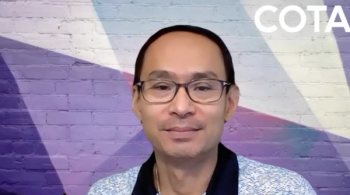
CK Wang, MD, chief medical officer of COTA, discusses how real-world data help identify disparities and gaps in cancer care.
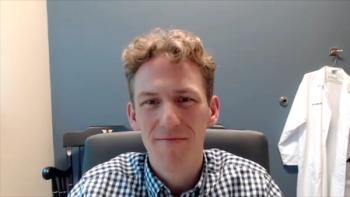
Eric Lander, MD, discussed the difficulty that clinicians and pharmacists face in getting insurance coverage for category 2B treatments in the National Comprehensive Cancer Network guidelines, which could affect how patients are treated for cancer.

Circulating tumor DNA (ctDNA) testing changes occur nearly every year, making consistent updates to National Comprehensive Cancer Network (NCCN) guidelines important for clinicians to make decisions on the use of these methods of testing, says Eric Lander, MD.

This research highlights the key factors, like leadership buy-in, mandatory protocols, and electronic health record workflows, that influence the effective collection of data on sexual orientation and gender identity in outpatient oncology clinics to improve patient-centered care.

Delivering value-based cancer care requires overcoming hurdles to access care and tailoring care that prioritizes the quality-of-life metrics the patient values, explained Coral Omene, MD, PhD.

Patients can benefit both financially and clinically by enrolling in ongoing clinical trials, said Eric Lander, MD.

Making clinical trials easier to find for clinicians and making protocols for entering clinical trials more lenient can help to improve access to clinical trials on a national and local level, explains Eric Lander, MD, of Minnesota Oncology.

Median overall survival was 5 months longer in patients with small cell lung cancer (SCLC) who received tarlatamab instead of chemotherapy after progression following platinum-based chemotherapy.

A teledermatology program in Georgia helped identify patients with skin lesions that warranted in-person follow-up with a physician.
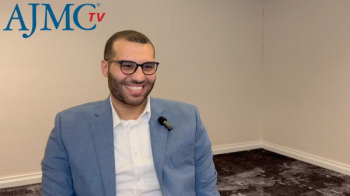
Pharmacists are being asked to not only manage medications and side effects but also be fiscally responsible for the whole institution and its trickle-down effect on costs, said David Awad, PharmD, BCOP, of Robert Wood Johnson University Hospital.
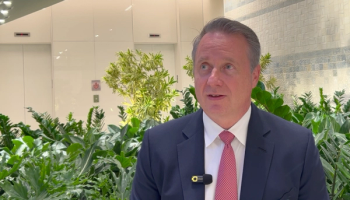
Andrew Evens, DO, MBA, MSc, deputy director for clinical services and chief physician officer, Rutgers Cancer Institute, introduces New Jersey's new state-of-the-art facilities at the Jack & Sheryl Morris Cancer Center.

The role that artificial intelligence (AI) and other technology can play in care delivery is growing, said Coral Omene, MD, PhD, of Rutgers Cancer Institute and RWJBarnabas Health.
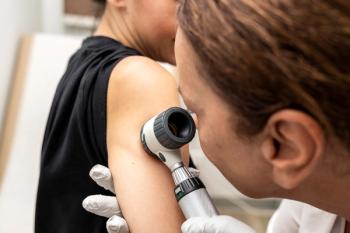
Cemiplimab improved disease-free survival in patients with high-risk cutaneous squamous cell carcinoma (CSCC) and performed well in patients with advanced CSCC in the real-world setting.

The FDA has granted approval to pembrolizumab for the treatment of adult patients with resectable, locally advanced HNSCC whose tumors express PD-L1 with a CPS of ≥1.

The FDA approved mitomycin intravesical solution (Zusduri) for patients with recurrent low-grade intermediate risk non–muscle-invasive bladder cancer (NMIBC).

Effective toxicity management in oncology requires pharmacists to document interventions clearly and collaborate closely with multidisciplinary teams, says David Awad, PharmD, BCOP.

A private oncology shared savings plan reduced colon cancer treatment costs. Results varied by tumor, with none in breast cancer and mixed effects in lung cancer.

Collecting comprehensive patient data, including social determinants of health, is crucial for equitable value-based cancer care, yet administrative burdens could worsen existing disparities, said Coral Omene, MD, PhD, of Rutgers Cancer Institute and RWJBarnabas Health.
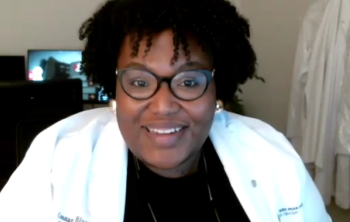
Constance Blunt, MD, medical oncologist, Mary Bird Perkins Cancer Center, discusses the potential consequences of losing free health care screening coverage.




